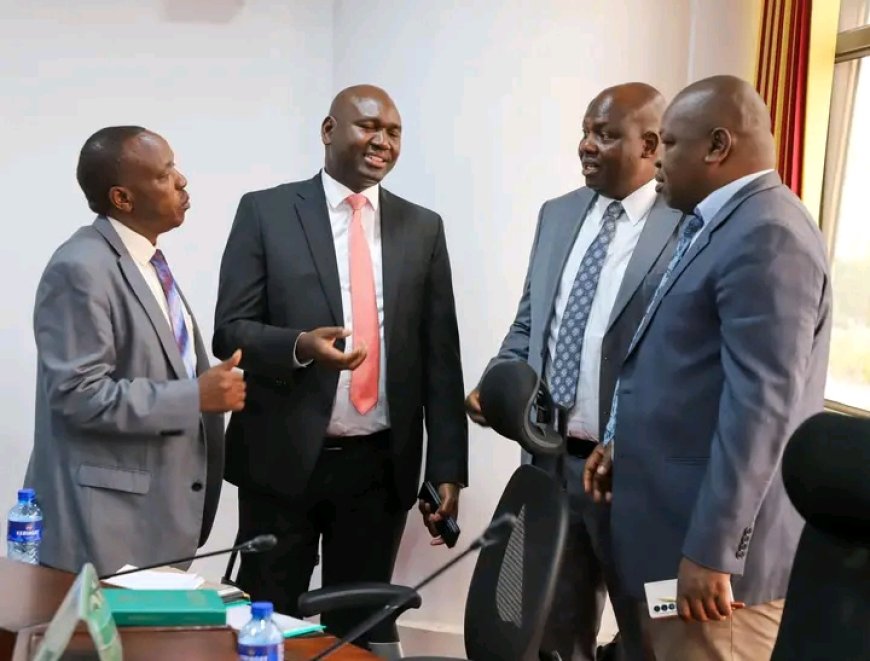Regional Committee Criticizes Refugee Management, Calls for Action

Nairobi,
26th November 2024
McCreadie Andias
The Departmental Committee on Regional Development has expressed strong concerns over the management of refugees in Kenya, highlighting issues of neglect, resource imbalance, and security risks.
Chairing the committee, Hon. Peter Lochakapong criticized the government for its apparent absence in the management of refugee camps, which are largely under the control of the United Nations High Commissioner for Refugees (UNHCR).
According to Lochakapong, government officials are often acting as UNHCR agents, following external instructions with little involvement in key decision-making processes.
The committee’s visit to camps in Dadaab, Kakuma, and other regions revealed stark disparities, with refugees receiving more attention than host communities, leading to mounting frustration among locals.
The MP noted the unequal distribution of resources and opportunities, particularly in education, where refugees are prioritized for scholarships while locals feel sidelined. He raised the example of Fafi, where refugees reside in Dadaab despite the District Commissioner being based in a safer location in Hagadera.
Hon. Dekow Barrow, MP for Garissa Township, warned of environmental degradation, particularly in areas where refugees gather firewood and make charcoal, contributing to deforestation. He also pointed to rising insecurity, linked to the influx of refugees, and called for a review of the government’s approach, suggesting that refugees should be distributed more evenly across the country.
Concerns about rising unemployment were echoed by other MPs, such as Hon. Majimbo Kalasinga from Kabuchai, who warned that increasing numbers of refugees without necessary skills might exacerbate job competition and social tensions, especially with growing local unemployment rates.
The Ministry of Interior acknowledged these concerns and attributed part of the problem to severe underfunding, which has hampered the effectiveness of the Department of Refugee Services (DRS). Principal Secretary Amb. Julius K. Bitok explained that the department’s budget had been reduced from Ksh. 116 million in 2022/2023 to Ksh. 97 million in 2023/2024.
Despite receiving supplementary funding from UNHCR, he emphasized the need for enhanced government support to address operational challenges.
Bitok also highlighted the increasing security risks in refugee camps due to militant activities, particularly from Al-Shabaab, which have targeted infrastructure and personnel. In addition, environmental issues like deforestation and resource competition between refugees and host communities have made the situation more complex.
The government is working with UNHCR to develop a more coordinated refugee management system, including a new interoperable database to better track and manage refugee populations. The passage of the Refugee Act in 2021, aligned with international conventions, has established key bodies to oversee refugee welfare. However, challenges in implementing the act persist, especially in areas like policy development and funding.
To address these issues, the government is prioritizing the development of a comprehensive Refugee Policy, with particular focus on reducing resource competition, improving security, and ensuring sustainability. The government has also committed to enhancing funding for refugee management, emphasizing the need for a more effective and coordinated response to the refugee crisis.
As Kenya continues to provide sanctuary for refugees fleeing conflict, the call for more proactive government involvement and a balanced approach to managing both refugee and host community needs grows louder.
What's Your Reaction?



































































































































































































































































































